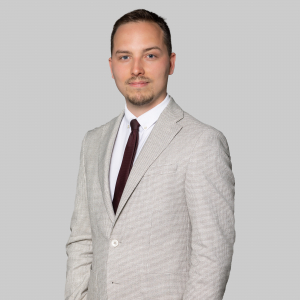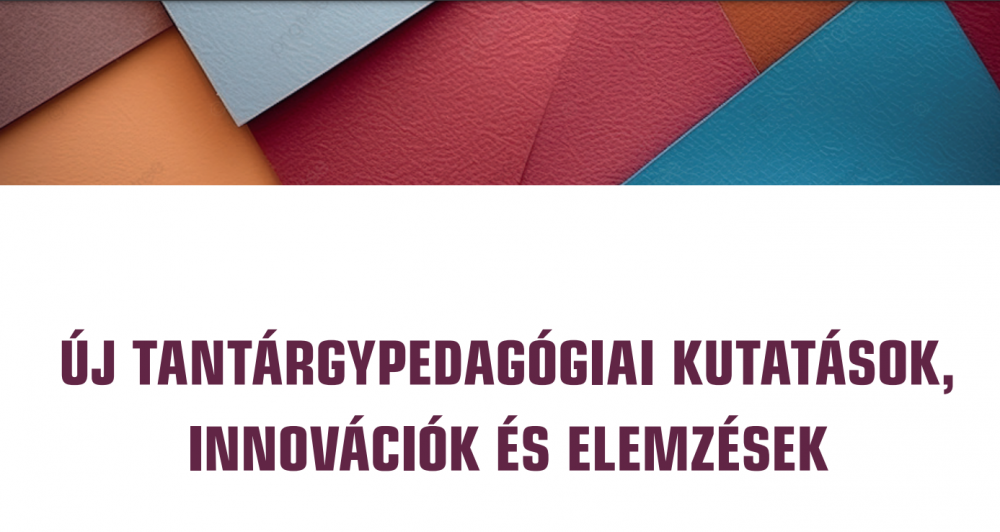‘(…) conservatism, in the sense of conservation, is of the essence of the educational activity, whose task is always to cherish and protect something, the child against the world, the world against the child, the new against the old, the old against the new. Even the comprehensive responsibility for the world that is thereby assumed implies, of course, a conservative attitude.’
First step: International Conference in Brussels
70 years after the publication of Crisis in Education the essay of Hannah Arendt still holds great actuality.
Mathias Corvinus Collegium, largest Talent Management Foundation of Hungary organised a large-scale event dedicated to the conservative and classical approach of education in February 2024. The idea behind the initiative was to invite experts of classical education from a wide range of European and Atlantic countries and create a common platform of intellectual discussion in the topic.
The organisation of the conference was a joint effort of MCC Learning Institute and MCC Brussels with Frank Füredi and Janos Setenyi as chief organisers.
The first day’s format was an expert networking seminar with 30 European educators, teachers, university professors of education and philosophy from Belgium, Canada, Czechia, Hungary, Ireland, Poland, the UK, the USA, Slovakia, and Sweden. The second day featured public podium talks and short presentations for around 100 guests. The public event on 13th February was commemorating the 70th anniversary of Hannah Arendt’s essay titled Crisis of Education.
Main fields of the conference included components of classical education, European and American threats, politicisation and ideologization and Central European initiatives and good practices.
In the keynote speech, Prof. Frank Füredi, executive director of MCC Brussels claimed that
‘the future depends on the standards by which we educate our children.’
Professor Füredi highlighted the significance of a regrettable global shift from disciplinary knowledge-based education to skill-oriented learning.
In this approach progressive thinkers maintain a skill-based agenda and depict disciplinary knowledge as useless in the fast-changing world. Soft or generic skills are propagated instead of hard skills, emotional intelligence is an extremely popular focus, and the promotion of critical thinking leads to relativism where right and wrong ideas are equal.
‘Pedagogy is no longer about intellectual inspiration.’
In the past decades motivation has become restricted only to the realm of psychology which resulted in the contemporary objective that teachers are not leading but managing the classroom.
In the progressive approach the child always needs to be in the primary focus of the education process (child-centred education) which frequently leads to the secondary place of objective knowledge. In this framework transcending everyday experiences is more important than classical methods of researching and understanding sources. The effect of Infantilization emerges, with worst example from USA where the ’no stress’ education is already present. Students are said to be medicalized due to testing their achievements, while only rare intellectual independence can be identified among young people.
János Setényi, Director of MCC Learning Institute started his keynote speech with the thoughts of Lech Walesa: ‘It is easy make fish soup from fish, but not easy to make fish from fish soup’ referring to the difficulty of the Hungarian education system to emerge from its ashes after the communist rule and also referring to Western European countries trying to escape progressive ideologies. Director Setényi emphasized that Hungary does not have to reclaim classical education; as Hungarians still have a curriculum firmly built on classical values and approaches emphasizing the importance of disciplinary knowledge.
Among many subtopics he mentioned the role homework, preserved chronology of Literature and History subjects, firm position of religious education and knowledge-rich textbooks. Central standardised assessment and competitive school life. He highlighted that motivation is a tool and not an aim in Hungarian schools.
Among difficulties, János Setényi mentioned two, the ever-increasing media noise about education and he went on with claiming that
‘We cannot save the west from the west - but can keep up the structures of realistic classical approaches for a further decade.’
Joanna Williams, Director of the independent think tank CIEO and visiting fellow of MCC has shed light on the changing importance of history education in Europe.
Williams claimed that
‘understanding education as an initiation into an intellectual inheritance binds education to both knowledge of the past and knowledge from the past.’
She introduced the process in which history education in the United Kingdom was reformed resulting in a set of presentist, identity-centred and politicised themes lacking the guiding role of chronology. Multiculturalism, decolonisation, inclusion and the European perspective are the keywords which are guiding strategic documents of the supranational European education policy.
In her conclusion Professor Williams indicated that rather than being initiated into a coherent national conversation about the past, successive generations of children have been taught a disparate, topic-based history curriculum that substitutes identity for chronology and alienation for belonging. Knowledge of the past and knowledge from the past no longer determine the content of lessons or the nature of pedagogy. Rather than history, culture and tradition shaping students’ character and values, social engineering projects that seek to engender values such as diversity, equity and inclusion are imposed on the curriculum alongside the promotion of supranational organizations.
A Second Step: Global Summit in Budapest
Following the event in Brussels Mathias Corvinus Collegium hosted its sixth international summit two weeks later in Budapest highlighting the significant European field of education policy.
The summit introduced a wide range of expertise. Nearly 50 authors, advisors, professors, university leaders, politicians, and representatives of further stakeholders of education have contributed to the podium talks. The speakers came from Austria, Brasil, Germany, Hungary, Chile, China, Italy, the United Kingdom, the USA, Paraguay, Poland, Slovakia, and Spain.
In his opening remarks, Dr. Zoltán Szalai, director general of Mathias Corvinus Collegium indicated that the impacts of the last two years motivated MCC to organise an international event on education and help educators equipping students with the intellectual tools to challenge mainstream progressive ideas.
Zoltán Szalai highlighted the initiative of MCC in publishing and translating the books of leading conservative authors as one of the many ways in which MCC creates platforms of discussion. Three important books have been published in the last weeks:
Firstly, Conservative Case for Education, Against the Current by Nicholas Tate, former chief executive of England’s national body responsible for the school curriculum. The book of Nicholas Tate looks at what major conservative icons as Eliot, Oakeshott, Arendt, Hirsch thought of education.
Secondly, Undoctrinate: How Politicized Classrooms Harm Kids and Ruin Our Schools by Bonnie Snyder, former K-12 educator, school counselor, and teacher educator. The volume sheds light on the American threats and possible solutions of politicised classrooms.
Thirdly, Excellent Sheep: The Miseducation of the American Elite and the Way to a Meaningful Life by William Deresiewicz, award-winning essayist and critic. The Excellent Sheep focuses on the crisis of the American Ivy league elite universities.
Podium discussions of the summit focused on revival of classical education.
During a panel discussion Nicholas Tate claimed that social engineering is a misleading adventure, and we cannot produce the ‘new man’ of the 21st century. He explained the stories of old and prestigious English and American schools which are taking up the ideology of woke. Although the zeitgeist is against conservative thoughts, the United States is large enough for minority thoughts to be strong enough and fight back. Tate identified schoolboards as a new battlefield for education. Borrowing the words of Hannah Arendt, he concluded that we shouldn’t tell people how to live and how to feel but tell them what the world is and what it has been.
Péter Lánczi, deputy director general of MCC underlined the importance of talent management and responsibility of the gifted. He asserted that talented people need to act for the community and high-quality, classical and competitive education is a good recipe to prevent talented students from brain drain as well.
Frank Füredi and Joanna Williams both focused on the ways of rebuilding standards of education. Professor Füredi asserted that Central-Europe cannot stay isolated from the new wave of social engineering and global woke ideology. He suggested that islands of quality education should be set up and parents must be mobilised.
Joanna Williams also highlighted the role of educators, their knowledge-rich and disciplinary-based teacher training. In her opinion instead of becoming psychologists, teachers should become experts in their disciplines who can form real expectations about achievement of students.
Cooperation of the Future

1st diagram, aim of the project titled Conservative Approach to Education
Upon the initiative of MCC Learning Institute participants of the twin conferences signed a joint declaration on the classical approach to education.
Several experts from Brazil to Poland all agreed on the importance of the role of disciplinary knowledge, stopping ideological narratives, strengthening teacher authority and parental involvement and the principle of subsidiarity in education.
A global network of conservative minded thinkers is formed by the support of MCC and several partner organisations who are willing to act together. Several initiatives and project ideas have been suggested by partners who contacted the Learning Institute after the events.
--------
[1] Arendt, H. (1954). Crisis in Education https://thi.ucsc.edu/wp-content/uploads/2016/09/Arendt-Crisis_In_Education-1954.pdf




